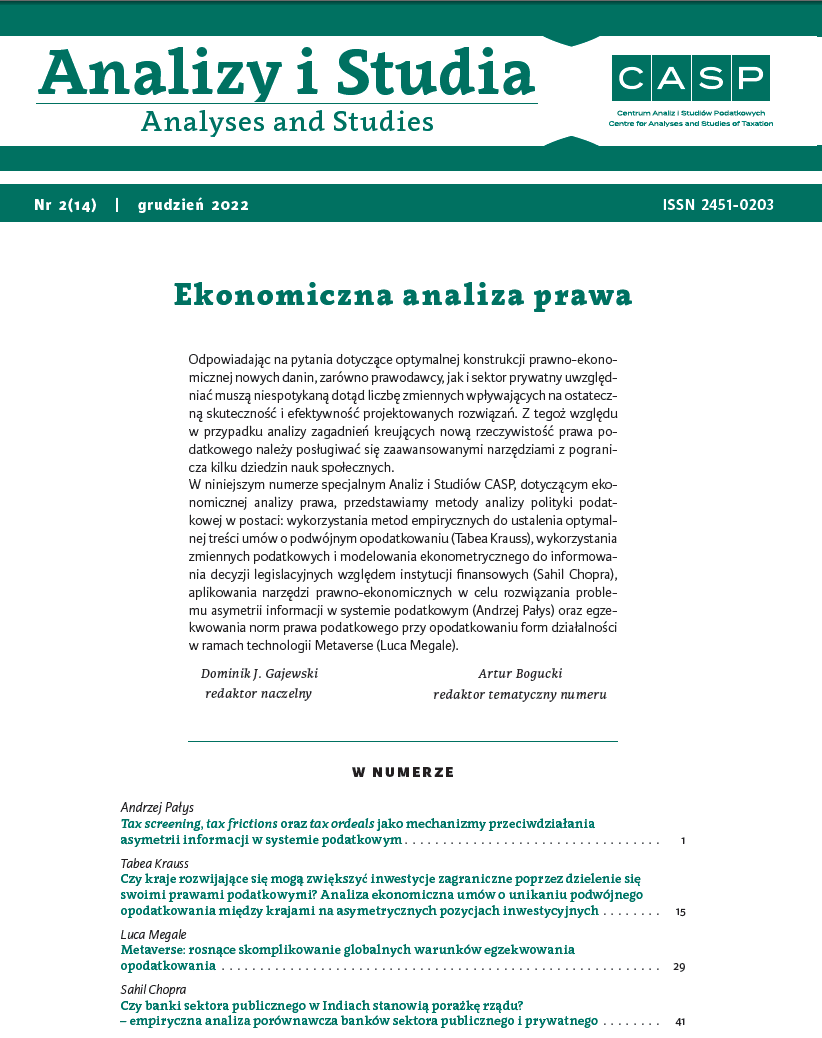Can Developing Countries Increase Foreign Investments by Sharing Their Taxation Rights
Can Developing Countries Increase Foreign Investments by Sharing Their Taxation Rights
Author(s): Tabea KraussSubject(s): National Economy, Developing nations
Published by: Szkoła Główna Handlowa w Warszawie
Keywords: double taxation treaty; Foreign Direct Investment; gravity equation; international tax cooperation; developing countries;
Summary/Abstract: This paper examines the effects of double taxation treaties on FDI inflows into both developing and developed countries. A gravity model equation was used to first estimate the general effect of the existence of a tax treaty between symmetric and asymmetric country pairs on FDI. Secondly, indices that indicate the proportion of source taxation rights negotiated in a tax treaty were employed in the same gravity equation as predictors. Both the conclusion of tax treaties in general and in particular those with a high share of source taxation were found to be negatively correlated with FDI inflows (–23.05%). A stronger effect could be estimated for FDI inflows into developing countries (–29.53%), indicating that developing countries face a more severe trade-off between the attraction of FDI from MNEs and the generation of tax revenue from business activities rendered in their territory.
Journal: Analizy i Studia CASP
- Issue Year: 14/2022
- Issue No: 2
- Page Range: 15-27
- Page Count: 13
- Language: English

